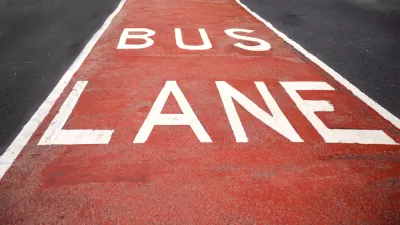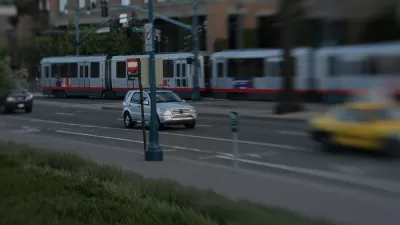Ever wonder how many people hop on those cable-cars in San Fran without paying the fare? Well, it turns out that transit cheats cost MUNI, San Francisco's transit agency, an estimated, $19 million a year.
A recent study to be presented to the Municipal Transportation Agency (Muni) governing board Tuesday, echoes what many Muni regulars long have griped about: Fare cheating is commonplace. In fact, the study estimates approximately 10 percent of riders do not pay a fare on the system that includes the famous trolley cars, a light rail system, and the agency's bus system.
Transit cheating occurs on crowded buses and near-empty ones. In many cases, riders board illegally through the back door; in others they ask the drivers for a "courtesy ride" or refuse to pay.
Transit operators, according to the report, give these free rides based on fear of assault. Other riders simply board on the back door of a bus, or fail to pay a fare on the trolley line.
FULL STORY: Muni finds almost 10% of riders are fare cheats

Planetizen Federal Action Tracker
A weekly monitor of how Trump’s orders and actions are impacting planners and planning in America.

Restaurant Patios Were a Pandemic Win — Why Were They so Hard to Keep?
Social distancing requirements and changes in travel patterns prompted cities to pilot new uses for street and sidewalk space. Then it got complicated.

Maui's Vacation Rental Debate Turns Ugly
Verbal attacks, misinformation campaigns and fistfights plague a high-stakes debate to convert thousands of vacation rentals into long-term housing.

In California Battle of Housing vs. Environment, Housing Just Won
A new state law significantly limits the power of CEQA, an environmental review law that served as a powerful tool for blocking new development.

Boulder Eliminates Parking Minimums Citywide
Officials estimate the cost of building a single underground parking space at up to $100,000.

Orange County, Florida Adopts Largest US “Sprawl Repair” Code
The ‘Orange Code’ seeks to rectify decades of sprawl-inducing, car-oriented development.
Urban Design for Planners 1: Software Tools
This six-course series explores essential urban design concepts using open source software and equips planners with the tools they need to participate fully in the urban design process.
Planning for Universal Design
Learn the tools for implementing Universal Design in planning regulations.
Heyer Gruel & Associates PA
JM Goldson LLC
Custer County Colorado
City of Camden Redevelopment Agency
City of Astoria
Transportation Research & Education Center (TREC) at Portland State University
Jefferson Parish Government
Camden Redevelopment Agency
City of Claremont




























